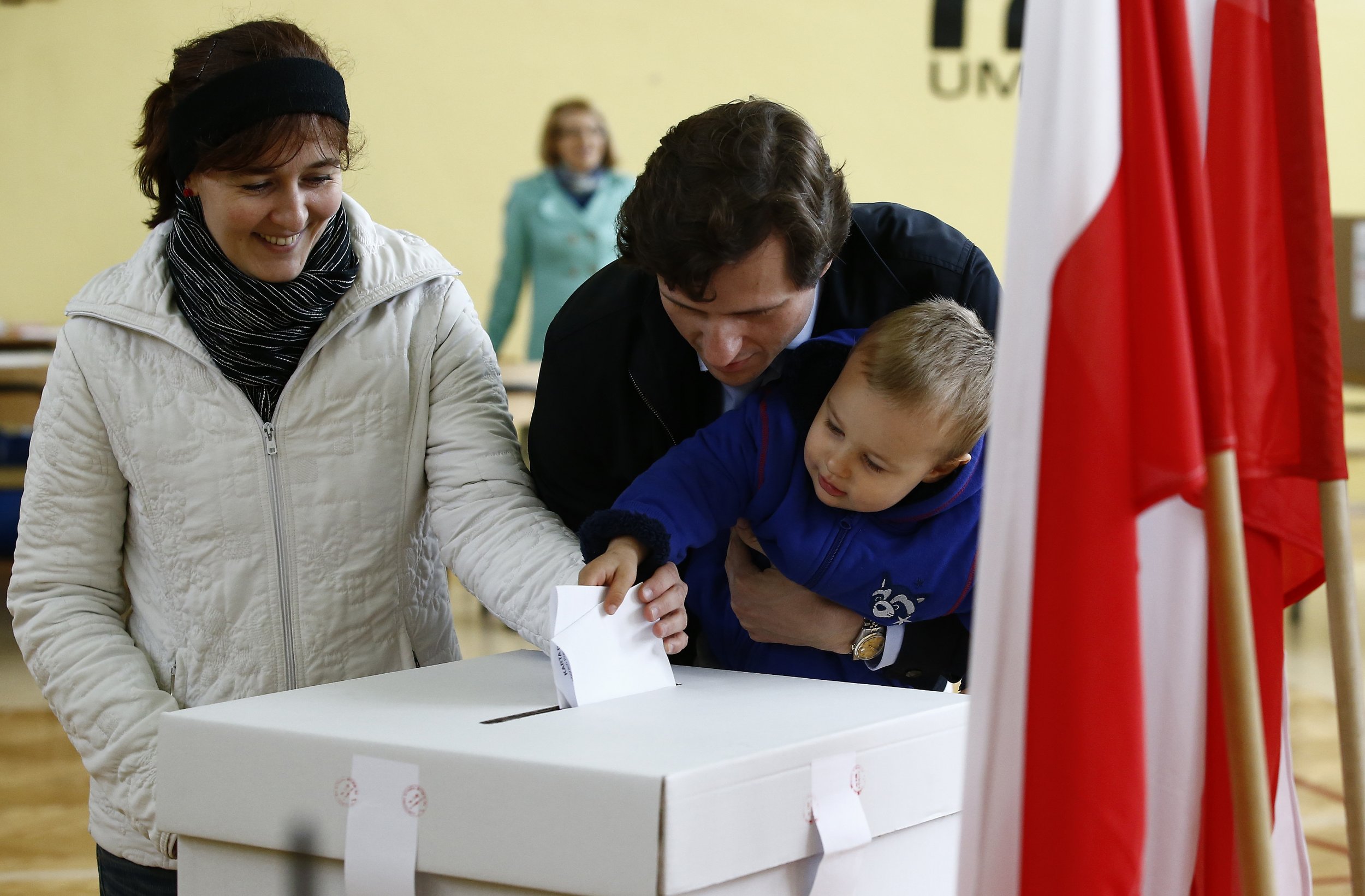
WARSAW (Reuters) - Poles voted for a president on Sunday in a run-off that is too close to call but has already sounded a warning for the ruling Civic Platform as it looks to re-election later in the year.
Originally seen as a shoo-in for a second five-year term, incumbent Bronislaw Komorowski finds himself neck and neck with his conservative challenger, Andrzej Duda, who defied opinion polls to come out on top in the May 10 first round.
Victory for 43-year-old Duda would mark the first major electoral win in almost a decade for the opposition Law and Justice party, and provide a springboard to challenge for government in the autumn.
But even the race alone has turned Duda, former legal aide and member of the European parliament, into a national political player and shaken the ruling Civic Platform.
Eight years in power, the center-right Civic Platform has presided over rapid economic growth and rising salaries in eastern Europe's biggest economy.
But despite unprecedented prosperity, many Poles feel the fruits of their labor have been unfairly spread, resulting in increased inequality, and are eager for new faces at the top.
"Economic growth? For the average citizen it is hardly perceptible," said Zbigniew Pela, 53, a railway worker who was voting for Duda on Sunday. "They create good living conditions for some social groups, who have their businesses, and not for ordinary citizens."
Komorowski, 62, has been criticized for running a lackluster campaign, jumping to life only after his loss in the first round. Since then, he has shown more energy and two opinion polls on Friday had the contenders practically level.
Piotr Matys, emerging markets strategist at Rabobank, said: "Even if Duda fails to dethrone President Komorowski, I think that the Civic Platform may not stay at the helm after the general election due later this year."
Some people said on Sunday they were voting for Komorowski because they felt he was a safe pair of hands on national security. Poland is worried it could become the Kremlin's next target after Russia's intervention in Ukraine.
In Poland, the prime minister leads the government but the president is head of the armed forces, has a say in foreign policy and in the passage of legislation, and also controls who heads the central bank.
The last time Law and Justice held national office, Warsaw fell out with its allies in Berlin and the European Union, and was drawn into bitter rows with Moscow.
"I'm afraid of Duda," said Michal Moranski, a 26-year-old barman. "Komorowski...cooperates with NATO and the E.U. and will form one front with them, without going ahead of everyone and waving his saber."
Uncommon Knowledge
Newsweek is committed to challenging conventional wisdom and finding connections in the search for common ground.
Newsweek is committed to challenging conventional wisdom and finding connections in the search for common ground.
About the writer
To read how Newsweek uses AI as a newsroom tool, Click here.








